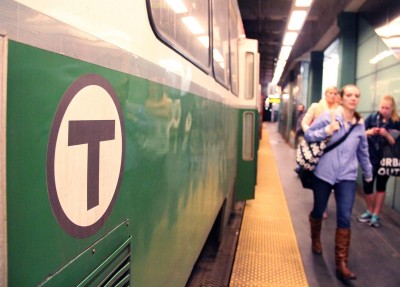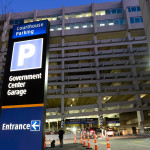A report released Wednesday by the Pioneer Institute found that a lack of funding is not the root of the problems for the Massachusetts Bay Transportation Authority, but instead the way in which the money is allocated to the MBTA’s various programs.

In the report, Pioneer Institute, which according to its website is a privately funded research organization, compared national transit system agencies to the MBTA. The Maryland Transit Administration, the Southeastern Pennsylvania Transportation Authority and Washington Metropolitan Area Transit Authority were found to be most similar to the MBTA.
“The Pioneer Institute has been looking at the MBTA for many years,” said Greg Sullivan, research director of the Pioneer Institute. “After the collapse of the commuter rail system this winter after the big storms, people were criticizing the T. The T has some very serious financial problems. We’ve already spent the money. We already have the debt. There are things that can be done to bring down the MBTA’s amount of debt.”
The Pioneer Institute worked with the Integrated National Transit Database Analysis System to retrieve and analyze data for the purpose making comparisons for the report. INTDAS allowed the Pioneer Institute to use comparable transit systems for peer analysis, the report stated.
“One of the problems with the T is it’s a very high maintenance budget,” Sullivan said. “The number of employees that are working to maintain the buses and the commuter rail, the trains and the vehicles are much more per vehicle than in other systems. If we were staffed in the same way per bus as Minneapolis in Minnesota, which is a very similar agency to us, if we had been running our maintenance as efficiently as they did, we would have saved over $250 million over six years, a lot of money.”
Sullivan suggested alternative areas to look to cut MBTA spending.
“Another area is that we should really reconsider the expansion,” he said. “We’ve been expanding too much, and we have to curtail that. We don’t have the money to do anything more. We have to take care of what is already there. We can’t be on a mad expansion spree anymore. We need to hunker down and examine what we have and find ways to save money.”
The report compares the MBTA’s income from capital and operating funds from local, state and federal levels to that of other transit systems nationally.
“First and foremost, the MBTA has undertaken capital projects and paid for them with state and local funds to a far greater degree than other transit systems have done,” the report stated. “Secondly, the state has paid for much of the MBTA’s debt service whereas other agencies pay proportionately much more … Our subsidies to the MBTA, including state and local subsidies in the form of capital and operating funding, are inordinately higher than those provided to the peer transit agencies identified by a federally funded database.”
This report clarifies and adds to a March 16 report also produced by the Pioneer Institute entitled, “The Myth of the Underfunded MBTA,” which reports on operating funds used in transportation systems, in addition to capital funds.
Several residents said when it comes to funding public transportation systems, all blame cannot be placed on the City of Boston.
Katie Waters, 22, of Fenway, said the amount of snow on the ground this winter made finding a solution to the MBTA’s problems impossible.
“I tried to avoid the MBTA when [the breakdowns] were happening. I found that it was easier to just not take the T,” she said. “There were times when it was really inconvenient, but when there are seven feet of snow, there’s really nothing they can do, even if they have a lot of money. This morning, I have to get all the way down to Brighton, and if I didn’t have a bus to take me, I would have to walk three miles or I just wouldn’t be able to go. It’s a really great option if you aren’t able to or you can’t afford to have a car.”
Laurie Lee, 19, of Fenway, said the MBTA is a vital part of daily city life, and expenses should be allocated so that the system can be funded appropriately.
“I use the MBTA for basically all public transportation, so I rely heavily on the buses,” she said. “It’s really important. It’s more convenient and obviously less expensive than taking a taxi, so that’s mainly the reason.”
Adrien Rose, 54, of Allston, said she is critical of the planning and management of the MBTA.
“There’s a big money issue for sure,” she said. “They definitely have a huge deficit, and they don’t want to admit it. What’s not reasonable is the service. It’s beyond the MBTA. It’s partially with city planning because 20 years ago, they were planning and they said it was going to be huge. There were going to be millions of people more. It was going to explode, and they did not make the necessary changes. It was very irresponsible. It’s a hard job, a lot of tension.”














